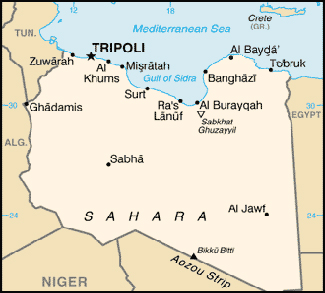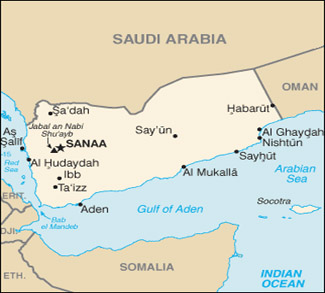The Middle East’s despots and the push for democracy synonymous with the Arab Spring make curious bedfellows. And yet, as an Arab League delegation presses the United Nations to support the league’s latest roadmap to peace in Syria, all overt signs suggest that the Arab world’s most ardently anti-democratic leaders have re-cast themselves as champions of Western-style liberal democracy, at least in appearance.
But for all the right sounds the Arab League has been making with regards to Syria, and earlier in Libya for that matter, the Arab League’s newfound respect for human rights should be approached with considerable scepticism – scepticism that should also be levelled at many of the more vocal critics of the Syria’s Assad regime.
Citing the Assad regime’s increasingly brutal suppression of anti-government activists and civilians alike, the Arab League suspended its mission to monitor conditions in Syria on Saturday, January 28th. Only a week earlier, the Arab League, with the support of Washington and Brussels, called for President Bashar al-Assad to abdicate power in favour of his vice-president Farouq al-Sharaa. According to league plans, al-Sharaa would then establish an interim national unity government comprised of Assad government stalwarts and opposition officials.
Recently, the Saudi foreign minister, Prince Saud al-Faisal called on “the international community to bear its responsibility, and that includes our brothers in Islamic states and our friends in Russia, China, Europe and the United States” to exert “all possible pressure” on Syria to follow the league peace plan. Many pundits cite these league actions as examples of it increasingly muscular efforts to end bloodshed in Syria and end the Assad family’s forty year reign.
Despite these grand declarations of principles and real political considerations, almost no political player in the Middle East has the stomach for a Libya-model revolutionary regime change in Syria. Syria, which lies at the heart of the very intricate web of Middle Eastern geopolitics, is not Ghaddafi’s Libya, a long-time pariah state on the periphery of regional politics. While NATO’s intervention in Libya was largely predicated on the principles of protecting civilians and the emerging tenets of The Responsibility to Protect (R2P), there are many more political consideration connected to regime change in Damascus.
As in many countries in the Middle East, the Syrian government encouraged sectarian divisions as a means to maintain its grip on power. In a manner similar to that of Saddam Hussein in Iraq or Muammar Kaddafi in Libya, the Assad family draws its strength from their native Alawi clan and other minority sects closely allied with the Alawite clan. And, much like Saddam’s ouster unleashed the forces of Islamic militancy in Iraq, any heightened conflict threatens to devolve into a protracted and brutal partisan civil war. At worst, the end of the Assad family’s reign threatens to once again unleash the sectarian conflict throughout the Middle East.
Political turmoil in Syria augurs poorly for the already combustible situation in Iraq made all the more vulnerable by the withdrawal of U.S. troops at the end of 2011. Without a strong hand in Damascus, the Syria-Iraq border has the potential to quickly deteriorate into a lawless abyss comparable to that of the Taliban controlled Afghan-Pakistani border region, the dangers of which officials in Washington know all too well.
Largely unmentioned amidst all the coverage and analysis of the Syrian uprising, moreover, is the spectre of the Muslim Brotherhood and other Islamic political organizations – the long-time bogeyman of Washington, Tel Aviv, and the Middle East’s autocrats alike. American and Israeli political analysts in particular, having watched the political ascendancy of the Muslim Brotherhood in Egypt and Tunisia, are warning vociferously that the regions hitherto dormant Islamist parties have been the primary beneficiaries of the Arab Spring and that the consequences of this phenomenon will be dire.
The Assad regime has precious few allies amongst its neighbours. Nevertheless, almost every political player in the region sees strong government in Damascus as a prerequisite to damming the growing tide of Islamic political activism in Syria and beyond. As throughout the history of the cold war, the ability to act as a barrier against the forces of radicalism is a significant trump card when it comes to geopolitical manoeuvring.
Utterly petrified of civil unrest, the so-called Council of Dictators is focused on subduing civil disobedience throughout the region, preferably while maintaining the status quo. Thus, Saudi Arabia, supported by Washington and Brussels, recently brokered the Yemeni power transfer from President Ali Abdullah Saleh to his deputy Abd-Rabbu Mansour Hadi in an effort to quell civil unrest.
Crucially, in Yemen, as in Egypt and Tunisia, the political mastheads were toppled but the structural forces that propped them up – the military apparatus, economic elites, and family alliances – still control their respective governments. Given the relative success of their gambit in Yemen, it is hard surprising that the league is trying to foist the same plan on Syria.
The League’s position is hardly at odds with Washington. Throughout the Arab Spring, the White House has waffled between sweeping advocacy for liberal democracy and furtively supporting the regions besieged autocrats in order to maintain political stability and access to oil supplies. When strife broke out in Bahrain, U.S. officials insisted that stability be rapidly restored but without using excessive force. When unrest erupted in Egypt, the White House dithered until the Egyptian dictatorship was on its last legs and then joined the chorus of voices denouncing Mubarak. This bipolar attitude continues full force as events unfold in Syria.
Further testing international resolve is Moscow and Beijing’s unflagging support for Damascus, both having suggested veto any UN Security Council resolution against Assad’s regime. The general mood is perhaps best summed up by Yevgeny Y. Satanovsky, president of the Institute of the Middle East in Moscow: “After Egypt, Tunisia, Iraq, Afghanistan, why should [we] once more look at all this with the idea that everything will be all right?” he said. “This is not a choice between good and bad, this is a choice between bad — which we have now — and terrible and apocalyptic.”
Making matters worse, Bashar al-Assad has given almost no indications that he intends to abdicate his seat. His military force remains largely intact and there is little reason to believe that Syrian opposition forces are capable of overthrowing Syria’s entrenched dictatorship without massive infusions of outside military and financial support. Meanwhile, Syria is heading ever closer towards a potentially catastrophic civil war.
Victor Mac Diarmid is a contributor to Geopoliticalmonitor.com



